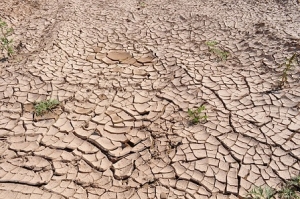 For decades the vast expanse of bleached hills in Israel’s Arava desert, which throbs with heat even at night time, had a mere inch of precipitation per year, and nothing, not even the hardy Israeli vegetation would grow there.
For decades the vast expanse of bleached hills in Israel’s Arava desert, which throbs with heat even at night time, had a mere inch of precipitation per year, and nothing, not even the hardy Israeli vegetation would grow there.
That changed in the mid-1960s when Israeli pioneers arrived and worked the soil in between fending off attacks from Palestinian militants along the Jordanian border. Although the earth was rather unforgiving and there were those who said nothing would ever grow there, they persevered because staking out their claim to this land was vital.
They grew roses; they set up wet curtains which are honeycombed walls that allowed water to seep through slowly, creating naturally air-conditioned greenhouses, and planted flowers in trenches of volcanic ash. At a later stage they used an Israeli-invented drip irrigation system to grow peppers and dates.
How Did Israel Manage to Defy the Drought?
Last year Israel experienced its driest year ever, yet ended it with a water surplus, and it is something that many are interested in investigating, as this desert nation could offer us some lessons in water use that could be beneficial to many water-scarce countries.
What was once barren desert is now a veritable Eden of greenhouses that stretch across the land, growing apricots, mangoes, avocados and pomegranates, and many more crops are grown outside covered by sheets of plastic which help to reduce evaporation. This narrow stretch of land now feeds Israel’s people and also produces 65 % of Israel’s vegetable exports, which consist mainly of peppers and tomatoes.
It seems that the Israeli’s innovative methods of utilising water, which include pioneering new types of irrigation, turning seawater into tap water, and reusing wastewater at the highest rate of any country in the world are working well for them. Other countries are taking note of their methods and are taking lessons.
Although Israel is a much smaller country than many others facing water shortages and droughts, many of its ideas can be used very successfully, and Israel currently has huge water projects underway in California, India and China.
According to Glenn Yago, founder of the Financial Innovation Lab at the California-based Milken Institute, the desalination, drip irrigation, wastewater recycling, and aquifer remediation methods being successfully utilised in Israel can be scaled for use elsewhere.
Living-Water sells bottled water coolers and mains fed water coolers in London.





